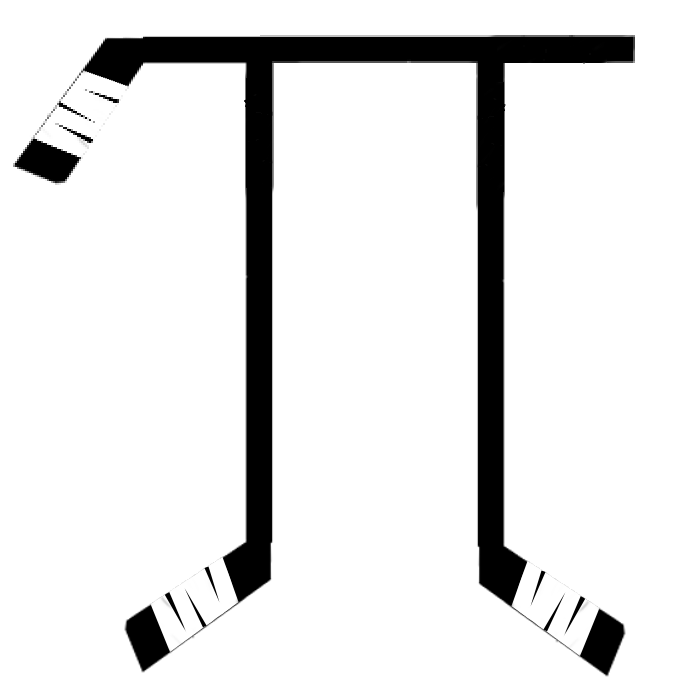Sports Publications
FiveThirtyEight
- Is There Home-Field Advantage At The Olympics? August 9, 2016
Why do host nations do so well?...the number of athletes that a country sends to the Games jumps tremendously when it is the host.
- Playoff Hockey is 36 Percent More Bone Crushing. April 15, 2015
Regular-season games average about 42.0 total hits for both teams prior to overtime. In the playoffs, that number jumps 36 percent to 57.2 pre-overtime hits per game.
- How To Tell If A March Madness Underdog Is Going To Win. March 19, 2015
At the opening tipoff, the underdog has a 29 percent chance of winning the game. But if the game is tied or the underdog is ahead with five minutes remaining in the first half, the probability of an upset is higher than 50 percent.
- After Signing Day, Wisconsin Makes the Best of Its Recruits. February 4, 2015
I looked at how well schools’ recruiting classes translate into wins on the field and created a rating of how much each program underperforms or outperforms.
Deadspin
- How Those 3-on-3 Overtime Rules Would Cut Down NHL Shootouts March 18, 2015.
Both proposals being considered by the GMs are likely increase the number of games that end in overtime and thereby decrease the number that go to a shootout. Playing five minutes of 3-on-3 results in a shootout rate of about 43.1%, while the hybrid 4-on-4/3-on-3 scenario has a shootout rate of 38.8%.
- Are Outdoor Hockey Games Really Sloppier? February 19, 2015.
We might predict that poor ice conditions would lead to an increase in the number of turnovers. Somewhat surprisingly, there were slightly fewer turnovers in outdoor games. On average, there have been 27 turnovers per outdoor game and 28.9 turnovers per indoor game.
- Are Teams Better or Worse in Must-Score Shootout Situations? December 22, 2014.
This result should not be especially surprising. A team that faces a must-score situation got there precisely because they were scored fewer goals than their opponent up to that point. Therefore it makes some sense that the goal scoring rate would be lower in these situations...Based on these two statistics, the probability that a shootout lasts 20 or more rounds is about 0.0027 percent.
- The College Gameday Curse Is Real...For Some Teams. September 5, 2014. With Lucas Puente
In other words, do any of the regularly-featured Gameday teams suffer from a "Gameday curse" and do some of them even potentially benefit from a "Gameday bump"? To answer this question, we collected data for the 30 schools that had Gameday broadcast from their games at least five times. Our dataset includes every non-bowl game played by an FBS team since the first full season of College Gameday in 1995.
[W]e can compare the bracket accuracy of experts to the bracket accuracy of average, non-experts. For this project, I collected data on all 11 million completed brackets (out of 12 million which were started) on ESPN.com's Tournament Challenge. Then I identified the brackets of 53 experts from CBS Sports, ESPN, Fox Sports, SB Nation, SI, and USA Today.
- How the Long-Change OT could Cut NHL Shootouts by a Third. March 12, 2014
[W]e should expect that 34.29 percent of the games that go to a shootout under the current rules would instead be resolved by a game-winning goal in overtime (plus/minus 3.45 percent). In other words, if the NHL GMs adopt the proposal to make regular season overtimes use the long change, the number of shootouts in the 1,230 game season would drop from about 166 (13.5 percent of games) to about 109 (8.87 percent).
Wall Street Journal
- The Madness Machine. March 16, 2015
Choose your priorities and the Madness Machine will create an NCAA tournament bracket using a statistical model that simulates each game.
- As NBA Playoffs begin, Odds of Beating the Heat. April 19, 2014
The results indicate that the Heat are still the favorites in the East, with a 29% chance of winning the conference, but they will likely have a tough time in the Finals., with only a 10.7% chance of winning it all. The San Antonio Spurs, who lost in seven games to the Heat in last year's Finals, have a 41% chance of winning the West and a 30% chance of hoisting the Larry O'Brien trophy in June.
- The Stanley Cup: What are the Odds? April 16, 2014
Given that the postseason often goes nothing like the regular season, are these the two teams we should expect to reach the Stanley Cup Finals? To find out, we simulated the playoffs 10,000 times based on a new power-ranking metric that is entirely based on in-game statistics.
- NCAA Tournament: Our Sorry, Broken Brackets. April 7, 2014
Based on this, there was a 1 in 136 million chance of at least one perfect bracket out of ESPN.com's 11 million. There would have to have been 15.1 trillion brackets, or 48,000 for every American, for there to be just a 1% chance of perfection.
- 2014 Sochi Olympics: Why Canada will Rule (Again) in Hockey. February 7, 2014
The Canadian team, led by Sidney Crosby, makes a combined $157 million in the NHL, up from $126 million in the 2010 Vancouver Olympics, when host Canada won the gold. The NHLers on the U.S. team earn $127 million, up from $83 million in 2010.
Peer Reviewed Publications
- How the West will be Won: Using Monte Carlo Simulation to Estimate the Effects of NHL Realignment. 2014. Journal of Quantitative Analysis in Sports 10 (3): 345-355.
The NHL has realigned its conferences and divisions, and starting with the 2013-2014 season the Eastern Conference features 16 teams and the Western Conference features 14. Yet because there are 8 playoff spots available in both conferences, teams in the West have a 57% probability of making the playoffs, compared to just 50% for teams in the East. As a result we should expect that, on average, the last team to make the playoffs in the West will have a worse record than the last playoff team in the East. We call the difference in points earned by the 8th seed in each conference the “conference gap.” The purpose of this paper is to estimate the expected size of the conference gap under the new alignment. Using tens of thousands of simulated seasons, we demonstrate that the conference gap will be, on average, 2.74 points, meaning that Eastern Conference teams hoping to make the playoffs will have to win 1 to 2 games more than Western Conference playoff-hopefuls. We also show the 9th place team in the Eastern Conference has a better record than the 8th place Western team twice as often as the 9th best Western team has a better record than the East’s 8th best. Our findings inform questions about competitive balance and equity in the NHL.
- Hosting the Olympic Games: An Overstated Advantage in Sports History. Forthcoming in the International Journal of the History of Sport. With Danyel Reiche. [Replication data]
Previous research on the home advantage in the history of the Olympic Games has found initial evidence that host nations have won more medals than non-hosts. In this paper we argue that these findings are a myth of sports history, providing poor estimates of the home advantage in the Olympics. We argue that selection bias accounts for the findings in previous work, which uses an empirical strategy of comparing host nations to all non-hosts and to historical performances of host countries with much smaller delegations. When we correct for this bias the evidence in favor of a hosting advantage disappears. Additionally, we argue that the existing literature has largely neglected the rules about athlete qualification for host countries. To the extent that a small home advantage does exist, it is almost entirely driven by increased participation rates.

